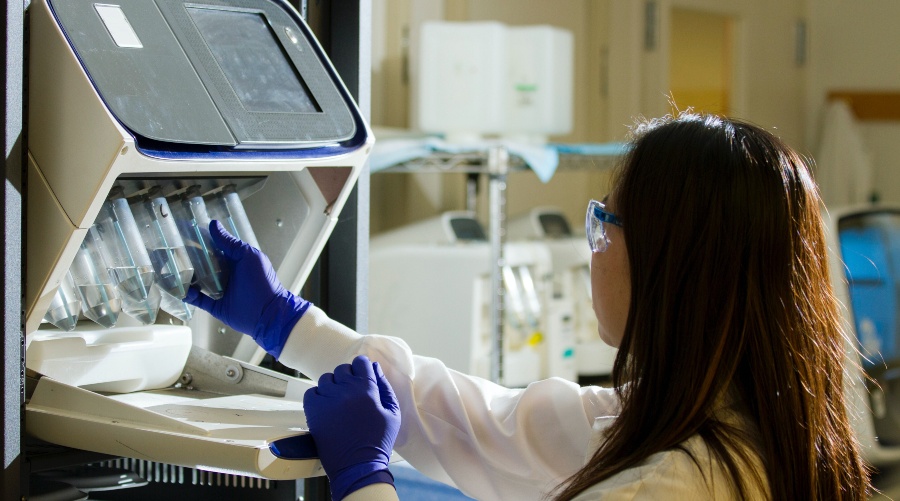
The green movement is influencing global energy production. Humanity relies on electronics to manage their health, time and safety. Diversifying electricity sources can optimize the global energy grid.
Power producers are adding fuel cells to the alternative energy supply and transitioning away from fossil fuels. Fossil fuels are expensive and unreliable energy sources, which negatively impact the medical field. Medical professionals are working with engineers to evaluate the compatibility of fuel cells with implanted and non-implanted devices.
Why Should We Power Medical Devices with Fuel Cells?
Doctors and other medical workers are integrating fuel cells into their field to minimize outages. America experiences adverse effects from frequent power outages. The country’s grid is less resilient than other nations and requires stabilizing additives.
Individuals can use fuel cells as a primary or secondary energy source. Some professionals are using fuel cells to prevent power outages during the hurricane season. Hydrogen fuel cells may store excess renewable energy as a solid.
The system filters energy through an electrolysis process and extracts hydrogen. Medical professionals could convert the hydrogen back into electricity during outages to minimize equipment limitations. During Hurricane Ida, New Orleans hospitals were physically oxygenating COVID-19 patients on ventilators.
Using fuel cells as a backup energy supply could prevent medical equipment interferences. They also may lower the mortality rate during storms and natural disasters. Doctors can use fuel cells to power both internal and external devices.
Fuel Cells and Implantable Medical Devices
Implantable medical devices are popular in modern medicine. Engineers often use inductive coupling to charge internal equipment like pacemakers. The charging process transmits electricity through body tissue and delivers sufficient energy to implantable medical systems.
Medical professionals can conduct inductive coupling using microbial fuel cells (M.F.C.s). The alternative energy source creates electricity from organic waste and microorganisms. Biosensors may effectively power internal devices without releasing emissions or relying on city energy supplies.
Creating fuel cell energy from bodily fluids decreases outage-related medical interferences.
Fuel Cells and Non-Implantable Medical Devices
Medical professionals can also power external medical devices with fuel cells. External equipment uses a significant amount of a hospital’s power supply. American hospitals rely on 31 kilowatt-hours (kWh) to support each square foot of space.
It is expensive and unsustainable to power hospitals with fossil fuels. Professionals can use fuel cells as a fossil fuel alternative or additives and optimize power production. They may preserve temperature-sensitive equipment through power outages with fuel cells.
C.T. scanners can overheat and damage their internal components. Medical workers may monitor scanners’ temperatures and maintain supportive climates. Individuals can also power ventilators, x-ray machines and other devices with fuel cells.
Sustainable Medical Equipment
Doctors and other medical workers can increase sustainability and cost-efficiency in the field by using low-impact equipment. Sustainable medical devices can help solve the municipal solid waste (MSW) problem. Individuals may replace single-use appliances with reusable versions.
Some dental professionals sterilize and reuse medal equipment every day to reduce waste. Other professionals use 3-D printing to create low-impact devices. Advanced printers are more efficient and precise than human manufacturers.
Using 3-D printers can reduce waste and increase power efficiency. Medical professionals may also install hydrogen fuel cell storage systems as backup power sources. They can use the devices as backup generators to prevent outages.
Investing in Fuel Cell Equipment
Engineers are advancing fuel cell devices and increasing their compatibility with the medical field. Professionals predict more fuel cell systems will power hospitals, external devices and internal equipment in the coming years. Individuals can invest in the future technology by teaming up with inventors and engineers.


Jane Marsh, Contributor
The views and opinions expressed herein are those of the authors and do not necessarily reflect the official policy or position of Fuel Cells Works, its directors, partners, staff, contributors, or suppliers. Any content provided by our contributors or authors are of their own opinion and are not intended to malign any religion, ethnic group, club, organization, company, individual or anyone or anything.
Read the most up to date Fuel Cell and Hydrogen Industry news at FuelCellsWorks




